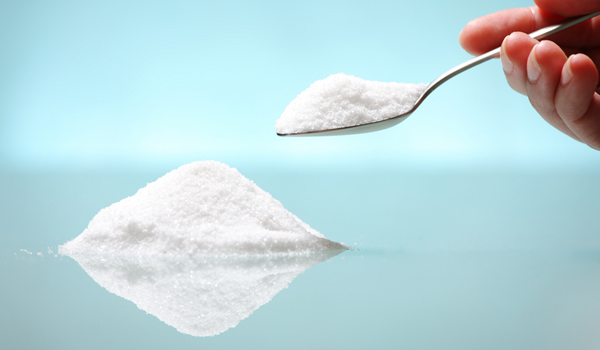US Salt Intake Drops Slightly, But Americans Still Eat Too Much

The amount of sodium Americans consume has decreased very slightly over the last decade, but most people still eat too much of the stuff, according to a new report from the Centers for Disease Control and Prevention.
On average, Americans consumed 3,424 milligrams of sodium per day during 2009 and 2010, which is down slightly from the 3,518 mg per day they consumed on average during 2003 and 2004, according to the report, which looked at people older than age 1.
But most people still consume more than the recommended levels of sodium: Between 2007 and 2010, about 80 percent of children ages 1 to 3, and 90 percent of people ages 4 and older consumed too much sodium, the report said. [4 Tips for Reducing Sodium in Your Diet]
The U.S. dietary guidelines recommend people limit the salt in their diet to 2,300 milligrams per day. And for 6 out of every 10 adults, the recommended limit is substantially lower: those who are 51 years or older, African-American, have high blood pressure, diabetes or chronic kidney diseases are advised to limit their sodium intake to 1,500 milligrams per day.
The small decrease in sodium intake seen in the study may have actually been due to people eating fewer calories overall in a day, rather than eating foods with less sodium, the researchers said. (The amount of sodium consumed per calorie did not decrease between 2003-2004 and 2009-2010, according to the study.)
In order to accelerate reductions in sodium intake, public health officials may want to couple efforts to reduce obesity (which involves reducing calorie intake) with efforts to reduce sodium intake per calorie, the researchers said. Efforts to reduce sodium in school lunches, as well as in packaged and restaurant foods, may also aid in progress toward an overall reduction in sodium intake.
"Even a 400-mg reduction in mean U.S. sodium intake might save billions of health-care dollars," the researchers wrote in the Dec. 20 issue of the CDC's Morbidity and Mortality Weekly Report.
Get the world’s most fascinating discoveries delivered straight to your inbox.
Excess sodium intake can lead to high blood pressure, which is a risk factor for heart disease, the researchers said.
Follow Rachael Rettner @RachaelRettner. Follow LiveScience@livescience, Facebook & Google+. Original article on Live Science.

Rachael is a Live Science contributor, and was a former channel editor and senior writer for Live Science between 2010 and 2022. She has a master's degree in journalism from New York University's Science, Health and Environmental Reporting Program. She also holds a B.S. in molecular biology and an M.S. in biology from the University of California, San Diego. Her work has appeared in Scienceline, The Washington Post and Scientific American.


